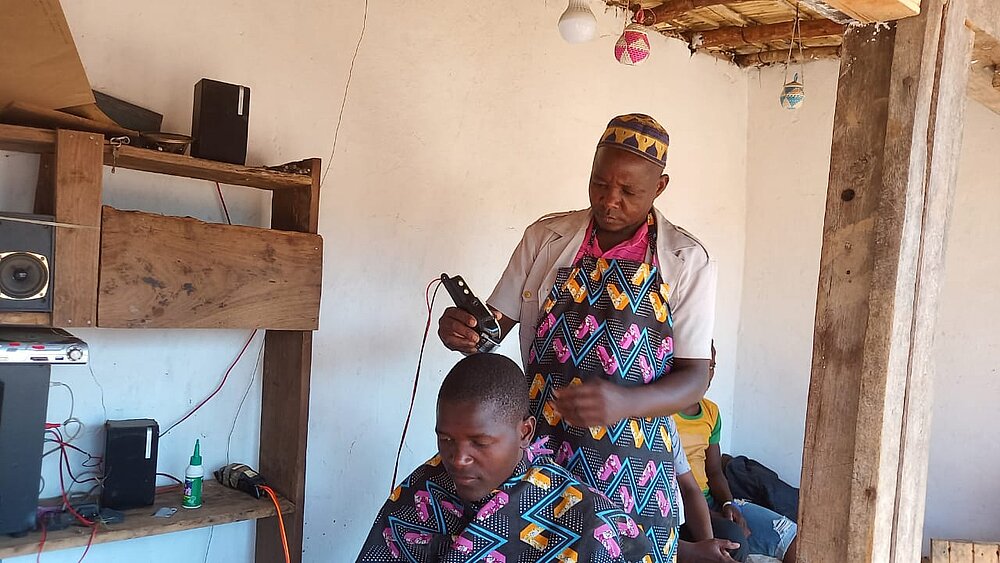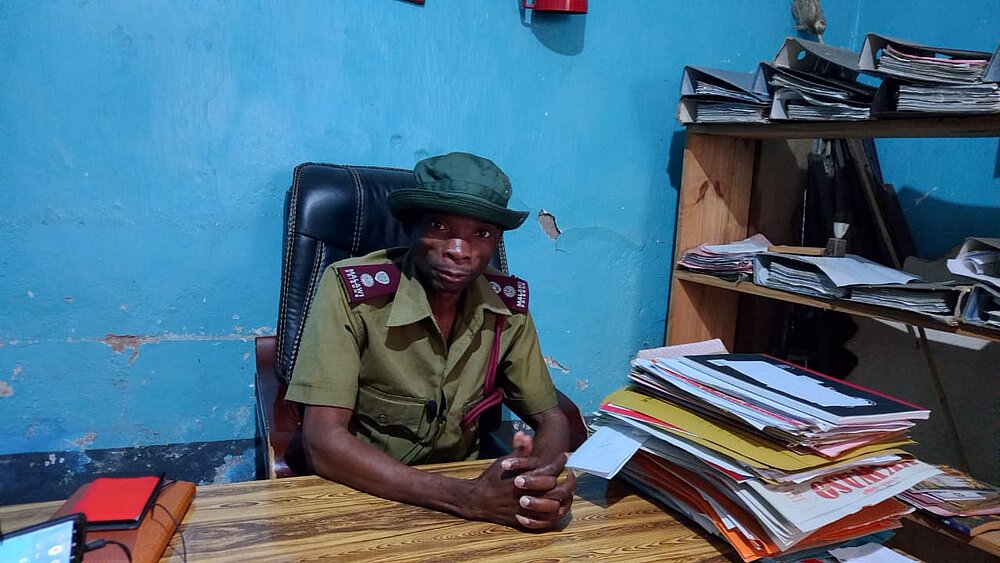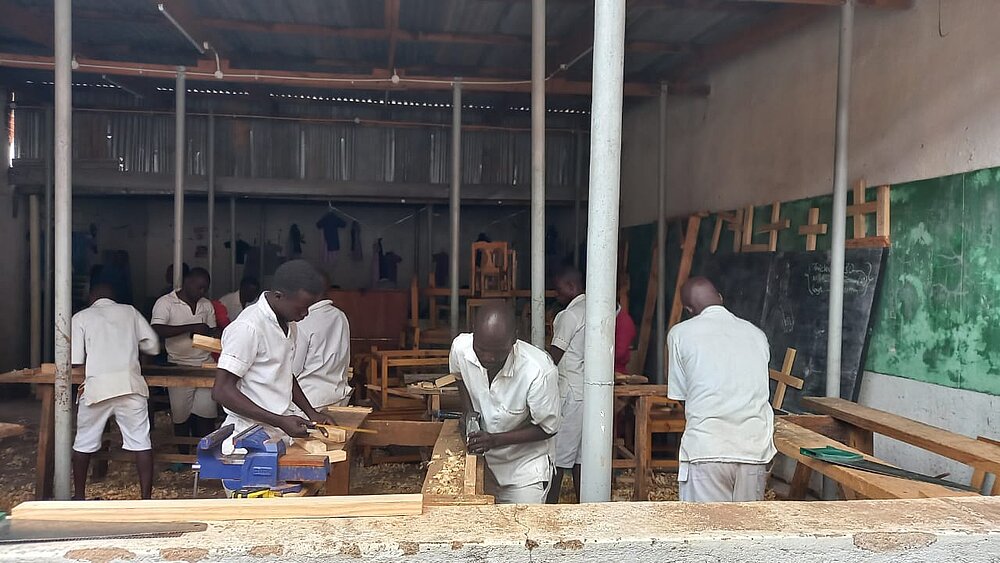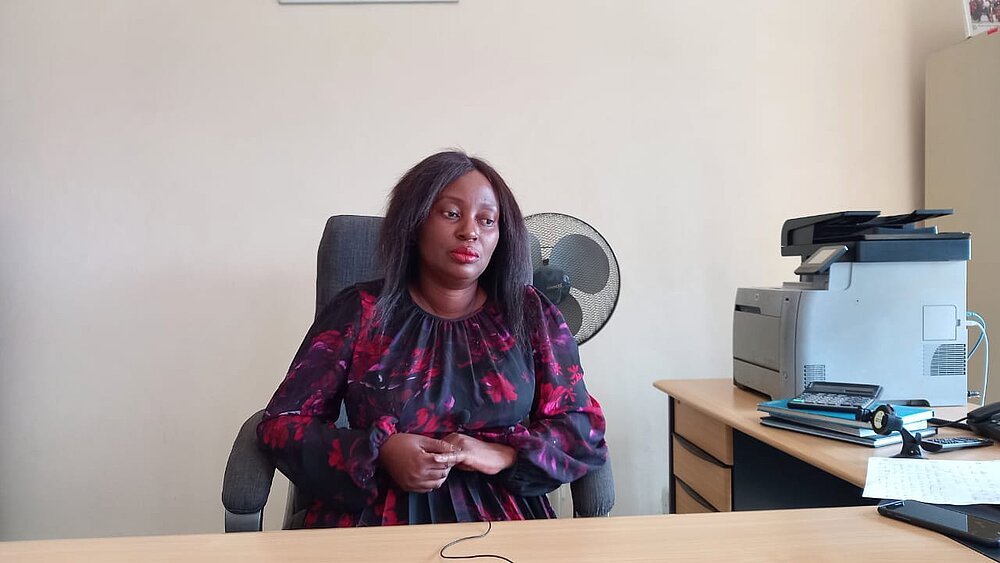By Lloyd Chitsulo
Mili Abdul, 38, from Makunolo Village in Traditional Authority (T/A) Nankumba in Mangochi District in Malawi (Southern Africa) was convicted of defilement in 2018. He was sentenced to 10 years and was to serve his prison term at Zomba Maximum Security Prison.
“I accepted my situation and I had to pay for my wrongs,” he says. While inside the prison walls, he says at times he felt depressed. He even had suicidal thoughts at some point.
However, seeing some of his fellow inmates walking out after serving their respective sentences gave him hope. He believed that someday he would walk to his freedom. His only worry was how the community where he lived would accept him.
This is also what bothered Jailos Katuma, 59, from Makweza Village, T/A Chikowi in Zomba District, who was convicted of raping a 25-year-old disabled girl in 2016.
He was handed a six-year jail term.“People perceive convicts to be outcasts in society and this bothered me at all times,” he says. As time passed by and the two were slowly adjusting to prison life, they decided to personally use time spent on the inside to reform so that they do not commit the same mistakes. While conditions inside the prison walls were harsh, they decided not to quit on life.
Says Abdul: “I decided to reflect on my life and meditate on how best I can reform as I was optimistic that I would walk out of Zomba Maximum Security Prison.”
Similarly, Katuma also felt that life behind bars was to enable him to deeply meditate on his life. In a nutshell, both of them were keen on reforming their lives while on the inside to become better citizens. So, they both decided to participate in numerous activities taking place inside the prison.
They also ensured that they behaved well.
Says Katuma: “I did not want to misbehave so I ensured that I was on my best behaviour despite life inside prison walls being quite challenging.”
The two were also interested in learning practical vocational skills with the hope that when they returned to society, they could venture into small-scale businesses.
Their wish came to pass in 2021 when DVV International and the Centre for Human Rights Education Advice and Assistance (Chreaa) introduced a Prison Education Project (PEP), which aims at equipping inmates with vocational skills.
The project is basically about the provision of education to inmates through various vocational programmes such as tailoring, carpentry and barbering, among others.
This is besides teaching soft skills like psychosocial counselling to the inmates. The project’s main objective is to reduce recidivism and facilitate the successful reintegration of convicts back into society.
Recidivism is the tendency of a convicted criminal to re-offend. Both Abdul and Katuma were luckily enrolled to learn vocational skills under the project. Abdul decided to learn barbering while Katuma opted for tailoring.
Says Abdul: “Prior to my conviction, I had an interest in learning barbering. So, I decided to learn while on the inside so that I may set up my own barbershop once released.”
Fortunately, Abdul was released in April 2023. He was among 200 prisoners that President Lazarus Chakwera pardoned as part of Easter celebrations. Since his release, Abdul managed to set up a barbershop with the help of well-wishers at Makunolo Village, his home.
The well-wishers supported him with a solar panel and other equipment required for the trade. On a good day, he is able to get K5 000 which he uses to support his family of five with the needed basic necessities including food.
He says: “Apart from barbering, I also charge cellphones and I am able to take care of my family. All this would not have been possible had I not learned barbering while in prison and through the PEP initiative.”
Abdul says at first, it was not easy for community members to accept him back in society. But with time, he says community members understood that he was reformed and that he had paid for his crime.
He says this is why he was supported by well-wishers in setting up his barbershop. Similarly, Katuma was also pardoned at the same time as Abdul. He managed to set up a tailoring shop at Makweza Village, his home, but closed shop because he could not afford to pay rentals.
Katuma now operates from his house where on a good day he is able to get K3 000 from customers. Despite the money not being enough, he is able to provide basic needs for his family of three.
His plea is for well-wishers to support him with capital to help boost his business. “I need a proper place to rent to operate a tailoring shop from. Customers approach tailors from their shops unless they know you personally and then they are able to approach you at home,” he says.
The optimism these two convicts had prior to their release is also shared with inmates learning vocational skills under the PEP initiative. For instance, Isaac Mwapula, a convict at Zomba Maximum Security Prison, is of the view that the barbering skills he is learning while on the inside will positively help him once released.
Mwapula, who is serving a 20-year sentence for a robbery conviction, however, says the skills can only be put to good use once a starter pack is provided to form a basis to start from.
He says: “If well-wishers will provide us with starter packs then we will be able to have a solid foundation to start from. We are reformed people but we will need that support.”
Despite currently serving a long sentence, Mwapula has hope that by the time he is released, he will be able to support his family where he was the breadwinner.
Another convict learning carpentry and joinery, Peter Chisale, who was convicted of robbery in 2020 and is serving a five-year jail term, expresses optimism that such skills will enable him not to return to a life of crime.
“This is my first time to learn about carpentry and joinery and I believe that once I am released, I will be able to set up my own shop as you know how challenging it is to get a job, especially for a convict like me. But support will be needed to form a foundation where to start from” he says.
A barbering instructor at Zomba Maximum Security Prison, Constance Sendeza, says it takes about four to six months for the inmates to properly learn.
She says: “Firstly, I have to teach the inmates how to take care of themselves as regards hygiene. This forms the basis of the barbering lessons.
“When the inmates start these barbering lessons, I teach them the basic hairstyles before they can learn these new and modern types of hairstyles.”
Sendeza says inmates who show passion for barbering lessons are able to learn within the first two months once lessons commence.
Harry Namanja, a carpentry and joinery instructor, shares the same sentiments with Sendeza. “Inmates perceive carpentry and joinery as difficult. So, due to this perception, they are slow to learn and it normally takes five to six months for them to learn,” he says.
Zomba Maximum Security Prison workshop-in-charge, senior superintendent Tracizio Nameta, says the PEP initiative has helped reform inmates at the facility. He says: “This project has helped reform prisoners who train in various technical and vocational skills. Because of these trainings, we have seen how convicts have established themselves outside the prison which is important.”
Chreaa programmes manager Joyce Dziwani says the PEP initiative has been a success since its roll out.
She says that over 53 inmates have graduated from the initiative, most of which are reformed and those that were released have established themselves outside prison.
Dziwani says: "I would say we are satisfied although there is slow progress because by now we could have expanded to various prisons. But due to resource constraints, we have been unable to do so."
Dziwani also acknowledges the challenge that released convicts are experiencing in setting up businesses due to lack of financial support. She says they will try to find ways in supporting them with start-up toolkits.
According to Dziwani, the PEP initiative is still in its pilot phase. She, however, expresses optimism that DVV International will continue rendering support towards implementation of the initiative.
"I also call upon the government and other donors and well-wishers to seriously consider investing in prison education, especially skills training, because it has a positive impact on inmates in a way that once they are empowered, reducing recidivism becomes easier," she says.
This article was first published by the Nation Publications Limited in Malawi






